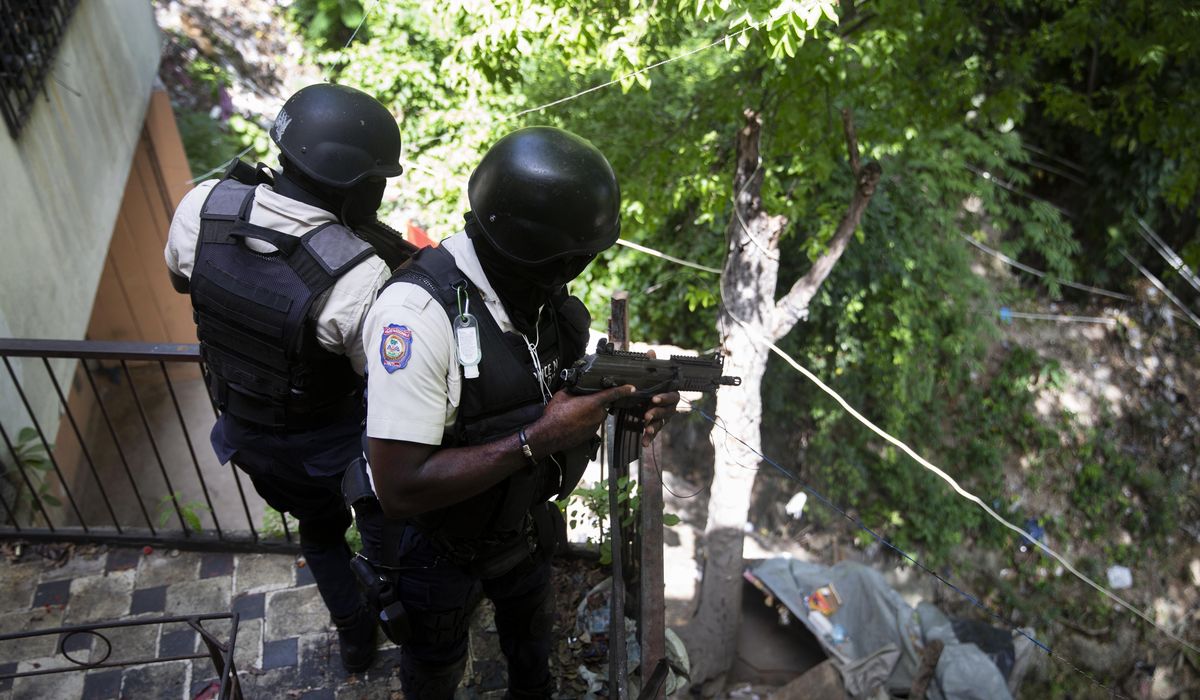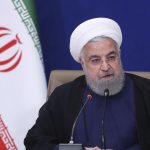
Police in Haiti say a hit squad of as many as 28 foreign mercenaries — consisting mainly of Colombians but including at least two Haitian-Americans — carried out the assassination of the country’s president this week, although there were more questions than answers as a fast-paced international investigation continued to unfold on Friday.
Rumors are swirling that regional drug cartels may have played a role, with sources pointing to apparent friction between now-deceased Haitian President Jovenel Moïse and transnational drug smugglers from several countries, including Colombia and Venezuela, who’ve increasingly seized on unrest in Haiti to turn the Caribbean nation into a key transit country.
U.S. federal law enforcement had not commented as of Friday afternoon, although regional sources say Mr. Moïse’s bitter relationship with the political opposition may somehow have played a role in his death.
Opposition leaders in Port-au-Prince, the Haitian capital, accuse Mr. Moïse of seeking to amass power on the country’s notoriously turbulent political landscape, limiting the authority of a court that audits government contracts and creating an intelligence agency that reportedly answered only to him.
Political unrest has been spiking since 2019. Mr. Moïse, a 47-year-old entrepreneur turned politician, refused opposition demands that he resign from the presidency that year. Large-scale demonstrations and street violence followed.
Haitian National Police Chief Leon Charles has so far pinned the killing on a team of foreign assassins. “Foreigners came to our country to kill the president,” the chief told reporters on Thursday. A group of suspects sat on the ground behind him with their hands bound during a news conference.
Haitian police told the BBC Friday that a total of 28 foreign mercenaries have been rounded up in the wake of Wednesday’s assassination. Seventeen were detained following a gun battle in Port-au-Prince. Three suspects were killed by police and another eight are still missing, the BBC reported.
In an eye-opening but apparently random twist, Taiwan’s embassy in Port-au-Prince said Haitian police had arrested 11 individuals who tried to break in early Thursday. Taiwanese diplomats gave no details on the break-in, but in a statement referred to the men as “mercenaries” and strongly condemned the “cruel and barbaric assassination” of Mr. Moïse.
“As for whether the suspects were involved in the assassination of the president of Haiti, that will need to be investigated by the Haitian police,” Foreign Affairs spokesperson Joanne Ou told The Associated Press in Taipei.
Haiti is one of a handful of countries worldwide that maintain diplomatic relations with Taiwan instead of the rival mainland Chinese government in Beijing.
The State Department has declined to comment on the reported involvement of Haitian-Americans in the attack.
Haitian officials have, meanwhile, contacted Colombia’s government seeking information about six of the men who’ve been arrested, including two of the three who were killed in Port-au-Prince.
The Colombian government has vowed to cooperate in the ongoing investigation.
Mr. Moïse was killed at his home in an attack before dawn Wednesday that also seriously wounded his wife. Interim Prime Minister Claude Joseph, has since assumed leadership with the backing of police and the military, according to The Associated Press.
• This story is based in part on wire service reports.







